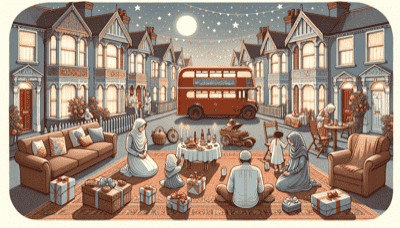We're here to help you keep count of the days to or since a date. Just click the button below and enter your chosen date to get started. Also choose the suggested days or search for a special day above #countingthedays

Eid al-Adha, also known as the Festival of Sacrifice, is one of the most important Islamic holidays and is observed by Muslims around the world, including those in the United Kingdom. Its date varies each year according to the Islamic lunar calendar.
Eid al-Adha commemorates the willingness of Prophet Ibrahim (Abraham) to sacrifice his son as an act of obedience to God before God provided him with a ram to sacrifice instead. This event is mentioned in the Quran and has parallels in Jewish and Christian traditions.
In the UK, Muslims celebrate Eid al-Adha with prayer and social gatherings. The day typically begins with a special prayer service called Salat al-Eid held in mosques or open spaces across different cities.
Prayer: Large congregational prayers are a hallmark, often taking place in parks or large venues to accommodate the community.
Sacrifice: Those who can afford it perform Qurbani, sacrificing a sheep, goat, cow or camel. The meat is distributed among family, friends, and importantly, to those less fortunate.
Charity: Charity or giving to those in need is a significant aspect of Eid al-Adha. Muslims are encouraged to give generously during this time.
Feasting: Families gather for festive meals throughout the day. Traditional dishes vary depending on cultural backgrounds but usually include meat from the sacrificed animal.
Dress: It’s customary for people to wear new or their best clothes as a mark of respect for this holy day.
Community Events: Many communities organize events which may include funfairs, bazaars, and other family activities.
Eid al-Adha in the UK reflects both religious observance and cultural diversity within the Muslim community. While maintaining traditional practices associated with Eid, British Muslims also incorporate local customs into their celebrations.